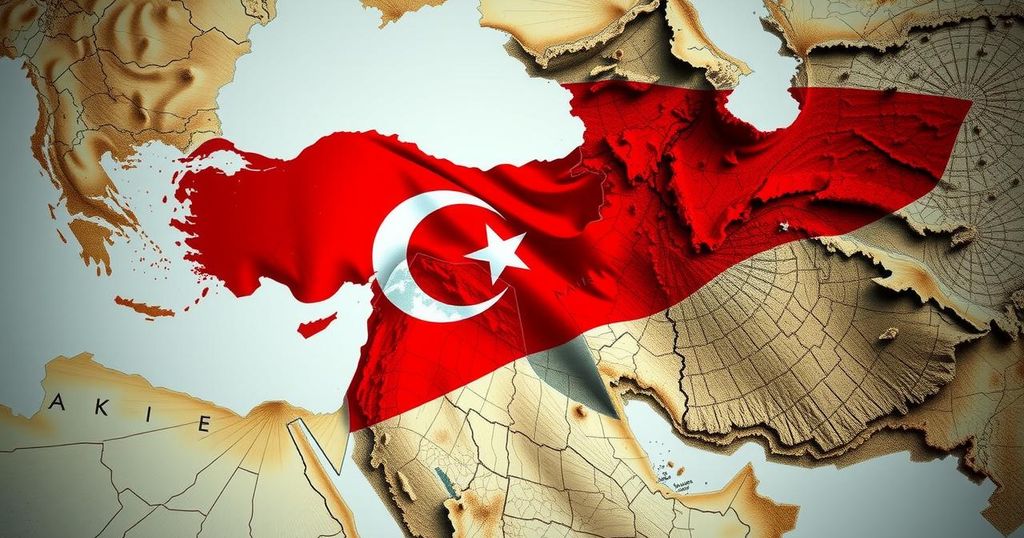Rapid Shift in Syrian Power Dynamics: Turkey Emerges as Key Player

The recent fall of Syrian President Bashar al-Assad marked a dramatic shift in geopolitical dynamics, sidelining Russian and Iranian diplomatic efforts while elevating Turkey’s role as a key external influencer. Despite attempts to maintain their influence during a summit in Doha, diplomats quickly turned obsolete as events unfolded, highlighting Turkey’s potential leadership in shaping Syria’s future governance.
As gunfire celebrating the liberation of parts of Syria echoed through the streets, the diplomatic maneuvers of Russia and Iran became impotent before the rapid changes unfolding in Damascus. Just hours prior, these key powers, alongside Turkey, met with representatives from five Arab nations in Doha to advocate for the cessation of military operations and the preservation of Syria’s territorial integrity. This meeting represented a last-ditch effort to maintain influence over the crisis, overshadowed by the immediate reality of President Bashar al-Assad’s regime being overthrown.
Following the collapse of Assad’s regime, Russian diplomats acknowledged the Syrian leader’s inflexibility and lack of willingness to engage in dialogue with Turkey. Iran’s foreign minister, Abbas Araghchi, appeared visibly troubled throughout the discussions. As the situation deteriorated, the fallout left diplomats practically powerless, highlighting their inability to manage the evolving power dynamics in Syria.
The recollections from the summit earlier that weekend underscored the stark reality facing Russia’s foreign minister, Sergei Lavrov, who was confronted about Russia’s decade-long involvement in Syria. His responses faltered under scrutiny, candidly admitting the gravity of the failure while attempting to shift attention to other global issues, particularly those surrounding Ukraine. Lavrov’s remarks about the necessity of preventing terrorism and his assertion that jihadist factions could not hold territory leveraged on the importance of the Assad regime fell flat against the growing evidence of a shifting balance of power.
Amidst the discussions, Araghchi reiterated Iran’s stance that Assad’s survival was possible, yet he appeared haunted by escalating events. The failure to secure Iraq’s involvement to bolster Assad’s position signaled a disintegration of Iran’s strategy regarding its security in the region. With significant ramifications, Iran’s position in Syria was under severe threat, foreshadowing a re-evaluation of its strategies moving forward.
Conversely, Turkey’s foreign minister, Hakan Fidan, recognized the advantageous position his nation faced post-Assad. With access to the Syrian National Army and alliances with various militias, Turkey could assume a leadership role in aiding the formation of a new Syrian consensus government. This emergence from the shadows aims to shape the future governance of a liberated Syria, granting Turkey substantial influence in the subsequent reconstruction and political processes.
The article discusses the recent fallout of Syrian President Bashar al-Assad’s regime and its impact on international diplomacy, particularly highlighting the roles of Russia, Turkey, and Iran as external powers in the conflict. It reflects on the failed attempts of these nations to exert control over the situation during a diplomatic forum in Doha, where the urgency of the Syrian crisis was encapsulated in their discussions about military actions and political solutions.
The recent developments in Syria, marked by the fall of Assad’s regime, have rendered long-standing diplomatic efforts from Russia and Iran essentially moot. This shift underscores Turkey’s rising influence, presenting an opportunity for it to play a pivotal role in establishing a new governance framework in Syria. The responses from key diplomats reveal the palpable anxiety and strategic recalibrations required in light of these transformative events, as they navigate a landscape where traditional power dynamics are rapidly evolving.
Original Source: www.theguardian.com








